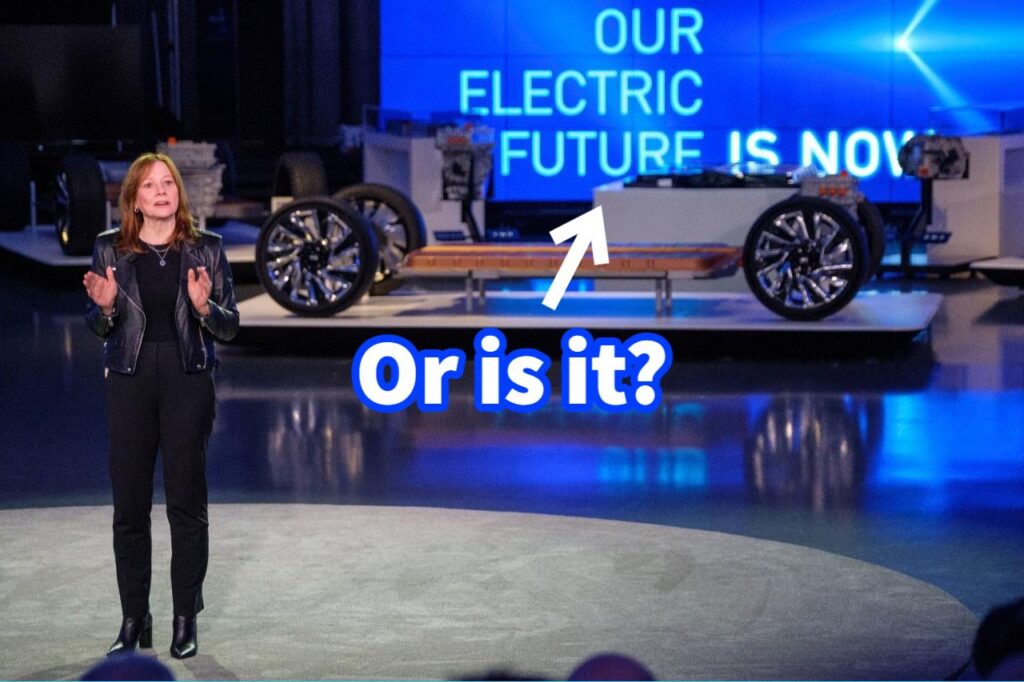
It has been nothing but bad news coming from the world of EV manufacturers. Even Tesla has announced that they will deliver notably fewer vehicles this year as the motorist’s enthusiasm for EV’s is losing its charge.
This is not just because of disruption like at its Berlin factory, demand for its offerings in China is falling largely due to cheap alternatives, particularly from BYD, which by some counts is now the world’s largest EV manufacturer.
Tesla were almost as famous for being the worlds most valuable car brand with market value of over USD1 trillion at one point. The worth of the company has fallen almost a third this year alone and now stands at only USD550 billion.
Don’t get me wrong this is still the highest value of any car company in the world but it did relegate Elon Musk to only the third richest man in the world.
Other startups are having a torrid time of it as well. Lucid and Rivian were both worth more than Ford at USD90 billion and USD150 billion respectively.
But when you consider Ford sold 4 million vehicles and Lucid sold 125 and Rivian just 920 in 2021, these valuations do look more than a little crazy.
In fact, six Tesla wannabe’s top the net worth charts at over USD400 billion between them, three of which were Chinese Li Auto, Nio and Xpeng.
Despite all of the massive subsidies in China and Government intervention in the rest of the world, few EV manufacturers are making money, most are just burning through hard-earned tax dollars.
The same six are now worth a mere USD60billion and a number of smaller entities like Fisker and HiPhi have paused production and are awaiting restructuring, or, like Faraday are on the edge of financial oblivion.
Even companies that seemed a little more resilient, like Vietnam’s Vinfast, are suffering. They managed to shift 35,000 cars and is now valued at USD35 billion—for the record, Rivian managed to shift 50,000 cars last year.
It wasn’t supposed to be like this, EV’s were the brave new world that would stop global warming and save us all. Let’s face it, there is very little development required for most of these cars.
You don’t need to develop an engine you simply buy them off-the-shelf. All a manufacturer has to do is design some wizardry that powers the driver’s in-car experience.
It would seem though that the need for critical mass is still the controlling factor to their market value and ability to more than an electric flash in a pan.
The need for a cheap mass market car is more required than ever and it is just this that has eluded most if not all of the current crop of Tesla Wannabes, including Tesla themselves who have allegedly just shelved their plans for the affordable Tesla 2.
Most are busily announcing plans to offer more affordable alternatives. Rivian who was marketing USD250,000 pick-up trucks will do this by 2026. Xpeng announced a deal with Didi Global (a Chinese Uber wannabe) to produce cheaper cars on a VW platform for the mass market.
Nio is launching two low-cost sub-brands called Alps and Firefly. Even Stellantis (who own Fiat and Chrysler and Peugeot) have just entered into a partnership with Leapmotors a Chinese tech company based in Hangzhou.
I think that it is more than just the critical mass though. And here I am not going to go into my usual rant on range anxiety etc. Teslas are ugly and, like Rivian who do look nicer, just are not that remarkable when it comes to in-car driver experience.
The cheapest Rivian costs 50% more than a Ford F-150 Lightning but does not offer anything that pick-up does not, and Ford cannot sell that vehicle either. Please do not get me started on Vinfast and why, oh why, would anyone buy one of them. Whatever the cause though it has led all of the EV manufacturers frantically scouring the world for more cash.
As the dust settles, and assuming there is no massive intervention from western governments, it is most likely that it will be the Chinese companies that will emerge victorious. It is not just that there is massive Chinese local and national subsidies for them, although that is helping.
It is not just that Chinese consumers are more about the in-car experience and thus the companies have focused their efforts here. It is more than that.
There is a new wave of car manufacturers emerging in China, these are companies that traditionally were not car manufacturers.
Huawei, basically a loosely veiled Tech arm of the Chinese government (allegedly) partnered with a car company to launch AITO; a car absolutely dripping with Tech, in January they delivered 33000 cars in the affordable segment.
Xiaomi, the well know Apple competitor who also make most of those pesky rentable electric scooters, have launched a car made by state car manufacturer BAIC. Their car is priced at USD30k and sold 90,000 units in just 24 hours.
Alibaba has along with SAIC, a massive state-owned car behemoth with a long history with VW group, managed to sell a modest 38k units last year.
Foxconn are now getting in to the game as well. Much better known for making the Apple iPhone mostly in China has announced that they aspire to make at least 50% of all the EVs to be sold be they own brand or contract manufactured, they just didn’t say by when.
For the more established EV manufacturers and the upstarts in the west, it would appear that times ahead are going to get a lot tougher real soon.




